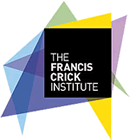About the Project
This 4-year PhD studentship is offered in Dr Paola Scaffidi’s Group based at the Francis Crick Institute (the Crick).
Epigenetic mechanisms have emerged as key players in cancer development which affect cellular states at multiple stages of the disease. During carcinogenesis, alterations in chromatin and DNA methylation resulting from genetic lesions unleash cellular plasticity and favour oncogenic cellular reprogramming. At later stages, during cancer growth and progression, additional epigenetic changes triggered by interaction with the microenvironment modulate cancer cell phenotypes and properties, and shape tumour architecture [1].
Our laboratory is interested in uncovering novel epigenetic mechanisms of cancer development and thereby guiding the development of novel therapeutic strategies. In particular, we aim to understand:
• How disruption of epigenetic memory promotes acquisition of uncontrolled cellular self-renewal during tumorigenesis.
• How epigenetic mechanisms generate functional diversity within individual tumours.
• How cancer cells reprogram their epigenome and hijack normal epigenetic regulators to sustain - and enhance - their malignant phenotypes.
To address these questions we use cellular model systems in combination with mouse studies and the analysis of clinical samples [2-4].
The project the student will work on and actively develop will investigate cell non-autonomous mechanisms of cancer development promoted by disruption of epigenetic control. The student will study the relationship between cell-intrinsic (mutations in epigenetic regulators) and cell-extrinsic (altered cell-to-cell interactions) mechanisms, and investigate its effect on clonal dynamics within tumours and its role in driving cancer evolution and metastasis.
The project will examine a broad array of epigenetic regulators, but also focus on a protein complex that we have identified as an important regulator of cancer stem cell function through an unbiased screen. The student will use a combination of molecular and cellular approaches to understand how cancer cell co-opt this protein complex to sustain their malignant properties and drive cancer progression. The functional importance of this complex, combined with the scarce knowledge of its mode of action, makes it a particularly attractive subject of investigation for both basic science and translational purposes.
The project involves a broad range of techniques including CRISPR-mediated genome editing, microscopy and quantitative image analysis, flow cytometry, mouse transplantation assays or use of transgenic animals, and genome-wide biochemical techniques (ChIP-seq, RNA-seq).
Applicants should note that the laboratory is not directly translational, and a strong interest in basic understanding of cancer is critical to join the group.
Talented and motivated students passionate about doing research are invited to apply for this PhD position. The successful applicant will join the Crick PhD Programme in September 2018 and will register for their PhD at one of the Crick partner universities (Imperial College London, King’s College London or UCL).
Applicants should hold or expect to gain a first/upper second-class honours degree or equivalent in a relevant subject and have appropriate research experience as part of, or outside of, a university degree course and/or a Masters degree in a relevant subject.
APPLICATIONS MUST BE MADE ONLINE VIA OUR WEBSITE BY 12:00 (noon) NOVEMBER 14 2017. APPLICATIONS WILL NOT BE ACCEPTED IN ANY OTHER FORMAT.
https://crick.ac.uk/about-us/jobs-and-study/phd-programme/
References
1. Wainwright, E. N. and Scaffidi, P. (2017)
Epigenetics and cancer stem cells: Unleashing, hijacking, and restricting cellular plasticity.
Trends in Cancer 3: 372-386.
2. Morales Torres, C., Biran, A., Burney, M. J., Patel, H., Henser-Brownhill, T., Cohen, A.-H. S., Li, Y., Ben-Hamo, R., Nye, E., Spencer-Dene, B., Chakravarty, P., Efroni, S., Matthews, N., Misteli, T., Meshorer, E. and Scaffidi, P. (2016)
The linker histone H1.0 generates epigenetic and functional intratumor heterogeneity.
Science 353: aaf1644.
3. Scaffidi, P. and Misteli, T. (2011)
In vitro generation of human cells with cancer stem cell properties.
Nature Cell Biology 13: 1051-1061.
4. Fernandez, P., Scaffidi, P., Markert, E., Lee, J.-H., Rane, S. and Misteli, T. (2014)
Transformation resistance in a premature aging disorder identifies a tumor-protective function of BRD4.
Cell Reports 9: 248-260.

 Continue with Facebook
Continue with Facebook

